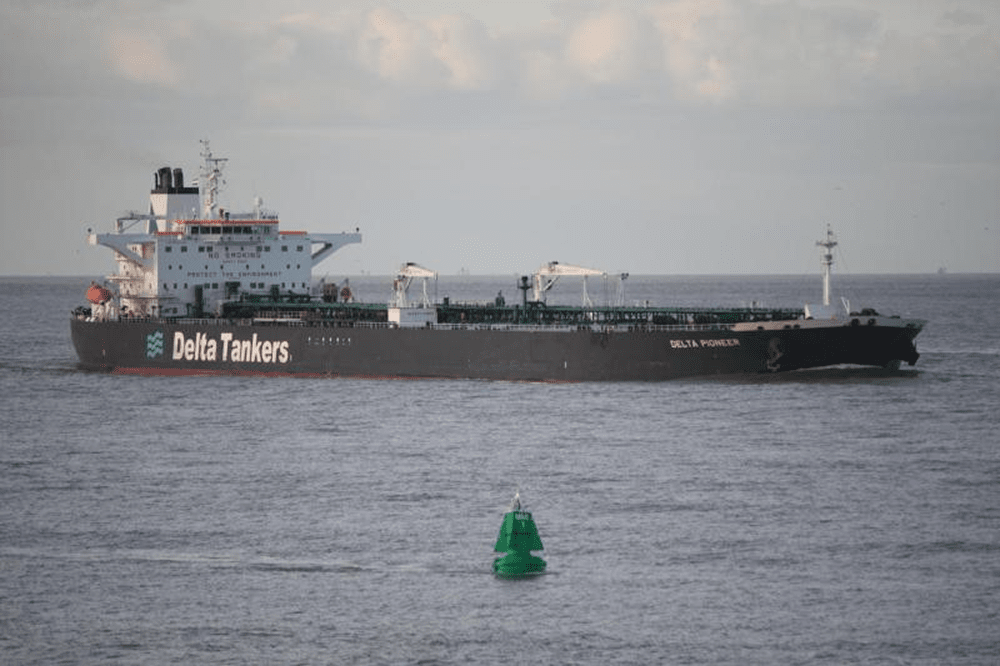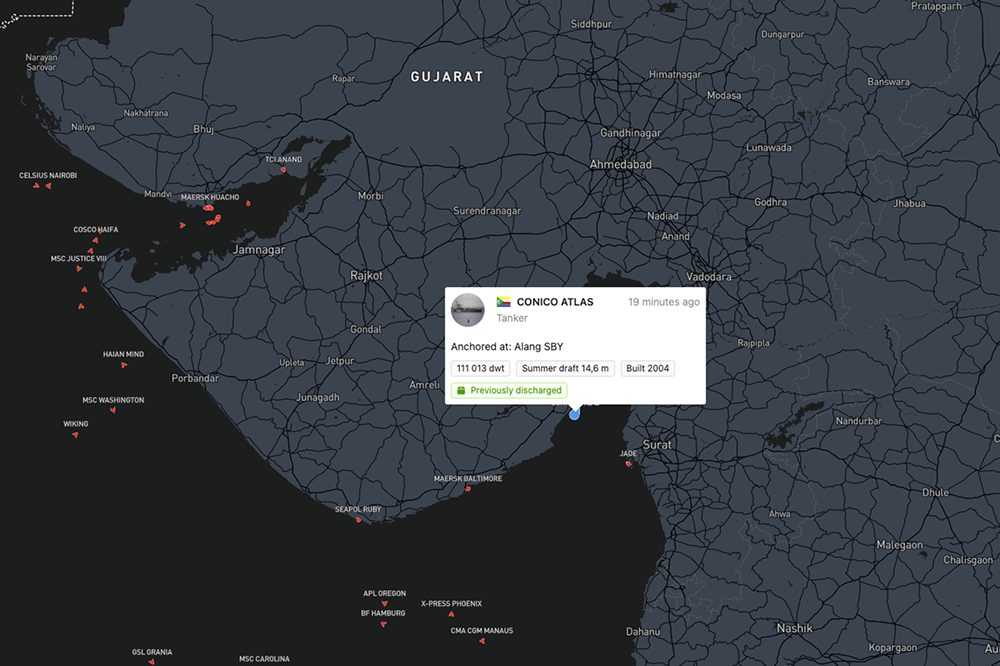The Gujarat High Court has ordered the arrest of the oil tanker CONICO ATLAS after a buyer claimed the vessel’s sanctioned status was hidden during its sale. The ship was recently delivered to the ship-breaking yard in Alang for scrapping, but the transaction has now been suspended following legal action.
According to court filings, Global Maritime Ltd, the intended buyer, alleges that the ship's owner misrepresented the vessel in the sales agreement signed in late May. The agreement reportedly confirmed the tanker was not subject to any international sanctions — a claim now in dispute.
Upon the vessel’s arrival at Alang in June, the buyer attempted to process the final payment but was blocked by banks due to the ship’s designation under EU, UK, Australia, Canada, and New Zealand sanctions regimes. In response, Global Maritime filed for compensation and contract annulment, demanding approximately USD 4.34 million in damages.
The Gujarat High Court has since issued an arrest order for the Conico Atlas, instructing customs officials at ALANG to detain the vessel until the legal dispute is resolved. The shipowner has until September 15 to respond to the petition.
Sanctioned History
Conico Atlas, a 2004-built Aframax, is one of hundreds of older tankers linked to trades involving Russian crude. The vessel was operating under the Comoros flag and has a trading history consistent with what’s often labeled “shadow fleet” behavior—frequent flag changes, opaque ownership, and possible involvement in ship-to-ship transfers of sanctioned oil.
The case reinforces the ongoing risk in acquiring end-of-life tonnage with opaque histories. As more of these vessels make their way to scrapyards, buyers face increased scrutiny from banks and regulators, even in demolition deals.





.png)
.png)
.png)
.png)
.png)
